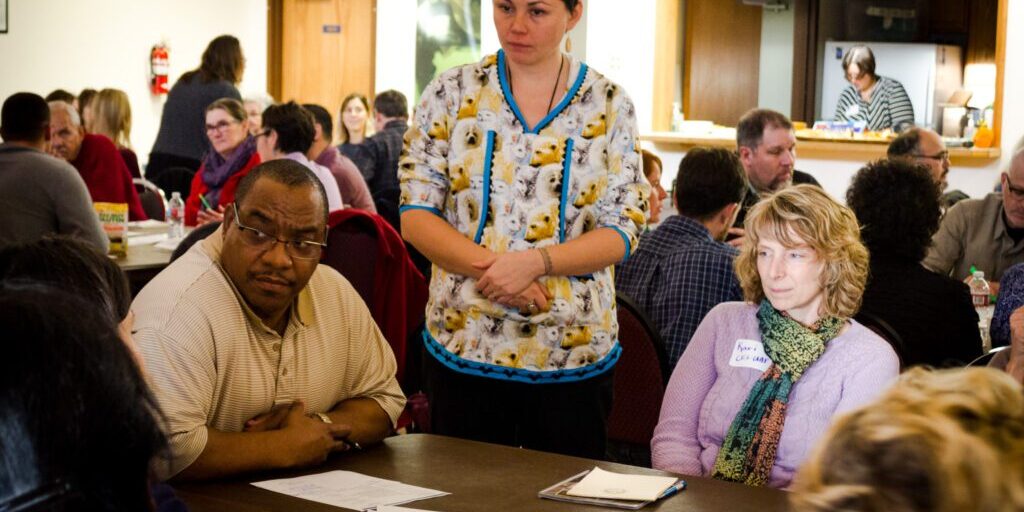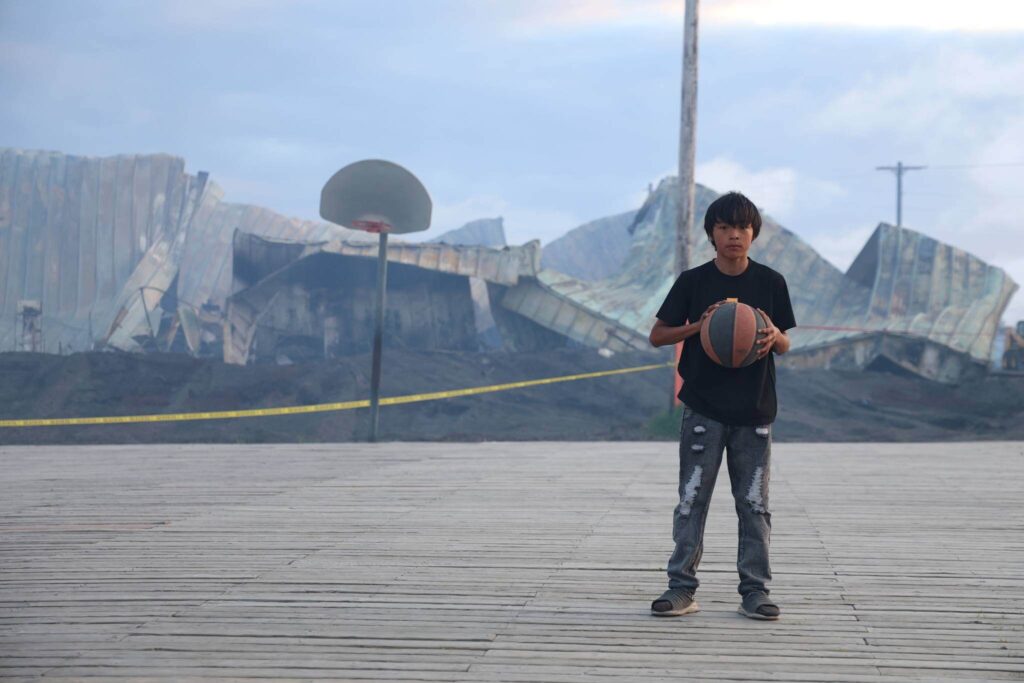The conversation continues this week with the Alaska Mental Health Trust Authority visiting Nome, Gambell, Stebbins, and Unalakleet. It’s a discussion with providers and experts from around the region and across the state about what is and isn’t working when it comes to mental health, substance abuse, and intellectual disabilities.
The focus of the talks across the Norton Sound this week are broad, but discussions at Nome’s Pioneer Hall Tuesday brought local providers face to face with the heads of major state agencies, forcing many to confront uncomfortable truths.
“Department of Corrections is the biggest mental health facility in our system. Something’s wrong with that picture,” said Ron Taylor, the commissioner for the Alaska Department of Corrections.
Amid discussions of strong families and youth, housing shortages, employment, and education, some participants called for fundamental and systemic changes to how Alaska approaches its jails and prisons, specifically, the disproportionate and disruptive impacts the systems have on rural Alaska Native communities.
Taylor said he was in Nome with an open mind and ready to talk about change.
“It’s obvious that we’ve done in the past hasn’t worked,” he said. “Coming to a rural community in Nome, and learning of the challenges that are here in Nome, a lack of housing, a lack of real community re-integration for our persons that are transitioning out, it makes us realize that, are we on the right track? Or do we need to be shift to something different?”
Just what the state, the Department of Corrections, and others looking for reform should shift to remained an open question.
“If we’re going to shift to something different, we have got to come to consensus on what the different looks like,” Taylor said.
Darlene Trigg, the social justice manger with the First Alaskans Institute, helped lead the conversation on what “something different” should look like. The ideas being offered ranged from broad goals down to specific changes. Trigg said common ground was making cultural resources part of the solution.
“Integration of culture is something that I’ve heard throughout these conversations,” she said. “The challenging question of how we do that, and how we create space for that, is where the conversations are going … it’s amazing to hear the kind of dynamic solutions people are coming up with.”
Those conversations are continuing in a big way Wednesday night, with a public Community Conversation starting at 5:30 p.m. at Nome’s Pioneer Hall on Front Street.
Trigg stressed the importance of local voices being heard.
“The community conversation is a real opportunity for people to share their lived experience, and in sharing your lived experience it gives you an opportunity to reflect on the impact that it has on your life,” Trigg said. “It offers an opportunity for our communities to start acknowledging some of the traumatic events that happened even in our own community, and it really informs how systems will function inside our community.”
She added that “without the voice of the community, and without the voice of the community members, we may come back with a design that doesn’t work, and we’re back to square one. And that is not what we need right now.”
KNOM Exchange will also be hosting a similar conversation Thursday morning, with guests from the Alaska Mental Health Trust Authority and the Alaska Criminal Justice Commission, who will be listening to share thoughts—and experiences—on the issues of mental health and criminal justice from across the Norton Sound and Bering Strait.







